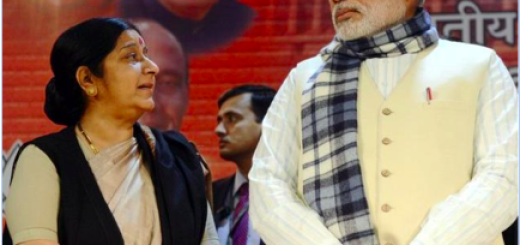Where is Morality in Politics? Defection is not dissent!

Editorial in The Tribune, Jul 25, 2020
Two political storms rocking the Nation today are happenings in Rajastan and Kerala. In Rajastan it is led by revolt by Sachin Pilot and in Kerala by gold smuggling! In both the stability of the ruling party is at stake.
At the root of the problem in both the states is the unethical or immoral behavior of our politicians in general who are led by the lure of power, pelf and dynasty in its multifaceted forms of class, caste community and nultitudes of political parties.
Politition = National interest
None thinks of National interest which ought be the prime interest of every politician trying to get elected by the majority vote of the general public belonging to all sections.
Politicians are elected to work for public good, the best interest of the nation first. For that one should be men and women of high morality, vision, conviction and action. How many of such candidates can we count in India?
Freedom of expression Supreme!
In democracies decisions are to be taken by state and governments by majority vote but not at the cost of not allowing or not listening to individuals when expressed in proper forums. So what is supreme in democracy is the freedom to express one’s considered views which may or nay not be accepted by the majority. jameskottoor, editor ccv.
Please read below the Editorial in the Tribune
The Rajasthan political crisis has once again exposed the worst malaise afflicting Indian democracy: defections. Close on the heels of the unsavoury developments in Karnataka and Madhya Pradesh, the political drama in Rajasthan evokes a sense of deja vu. At the root of the problem is the unethical behaviour of legislators, who unabashedly join hands with rivals for questionable reasons.
To deal with the problem, Parliament added the Tenth Schedule to the Constitution through the 52nd Amendment in 1985. Popularly known as the anti-defection law, it envisages two circumstances when a lawmaker can be disqualified — if he/she voluntarily gives up membership of a party and when he/she votes or abstains from voting against the party directive.
Hollohan case (1991), the Supreme Court upheld its validity. The law brought sanity to the political scene marred by the ‘Aaya Ram, Gaya Ram’ phenomenon. But the court’s comment in the Rajasthan case that the voice of dissent within the party cannot be suppressed has complicated the issue. ‘It seems party members cannot raise their voice against their own party. Voice of dissent cannot be shut. They have all been elected by the people. Can they not express their dissent,’ the court observed.
There is a difference between defection and dissent. A dissenting voice can always be raised by legislators at party forums. Asking their own government to face a floor test and allegedly hobnobbing with the Opposition can’t be termed dissent. Going by the SC verdict in the Ravi Naik case (1994), their conduct would clearly fall under the category of defection. ‘Even in the absence of a formal resignation, an inference can be drawn from the conduct of a member that he has voluntarily given up his membership of the party to which he belongs,’ the court had ruled.
Politics bereft of ethics is nothing but a vulgar dash for power. Inducing lawmakers to switch sides to cook up a majority for a party voted out by the electorate cannot be approved of. As the guardian of constitutional morality, the judiciary needs to check in.
















